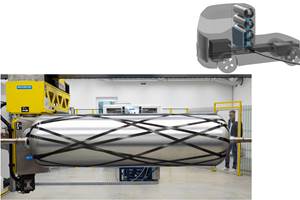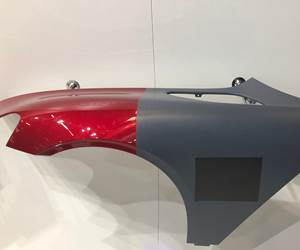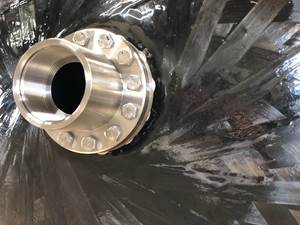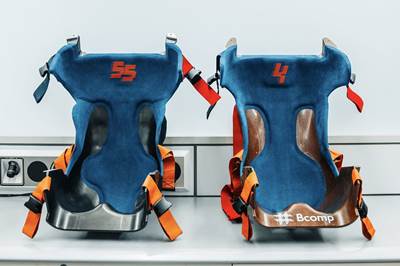Natural fiber crash box design for motorsport
The natural fiber Front Impact Absorbing Structure (FIAS) prototype showed desired crash behavior and eradication of sharp splintering, proving it as an alternative to carbon fiber in motorsport applications.
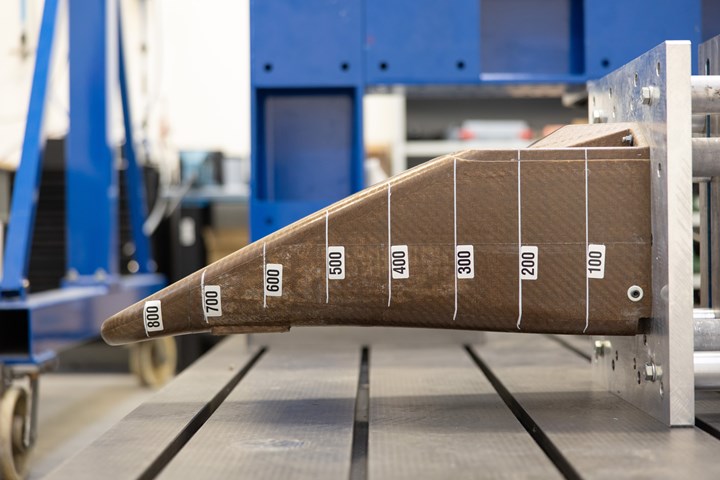
YCOM’s natural fiber FIAS prototype before crash test. Photo Credit: Bcomp
Advanced technology company YCOM (Parma, Italy) and Bcomp (Fribourg, Switzerland) announced on Oct. 20 the successful crash-test of a natural fiber Front Impact Absorbing Structure (FIAS), what is said to be the first of its kind. Designed by YCOM and using Bcomp’s high-performance ampliTex flax fibers (see “Porsche, Bcomp collaborate on racing car with all-natural fiber composite bodywork”) the test is said to prove that natural fibers can play an important role for the development of structural- and safety-critical parts.
According to Bcomp, the crash box is designed to optimize the performance of the ampliTex natural fiber reinforcements and was tested at the FIA-approved test house at the Polytechnic University of Milan. Producing results in line with a traditional carbon fiber structure, the material shows desired crash behavior required from a safety perspective and eradicates the danger of sharp splintering. Furthermore, natural fiber composites waste can be used for thermal energy recovery.
For the motorsports industry, says Bcomp, this proves that high-performance natural fibers can be used for significantly wider applications than previously thought, reducing the environmental impact, and enabling technology transfer to mobility. The natural fiber FIAS prototype, designed as a proof of concept, is currently 40% heavier than its carbon fiber counterpart, but still enables a CO2 reduction of approximately 50% on the composite side.
“Pushing the adoption of natural fibers requires engineers to integrate it from the first day of the design phase. Mastering the full process is the only way to optimize performance and thus increase the competitiveness of sustainable composite materials,” says Mario Saccone, YCOM co-founder and composite expert. “We are really happy to collaborate with Bcomp in this development. Motorsport is a forge for new technology development. This must be done fast and without any risk of error. YCOM has the right experience to embark on complex R&D projects, with the flexibility of the motorsport approach to accelerate product development.”
As industry and governments continue the fight against climate change, motorsport is said to be playing a crucial role as a test bed for sustainable technologies. The motorsport industry enables products to be brought to market and tested in extremely short time frames and then, once proven, these technologies can be applied to high volume vertical markets including automotive, aerospace, and marine.
“This innovation offers new and existing racing series the opportunity to take sustainability to a whole new level,” says Johann Wacht, Motorsports manager at Bcomp. “Together with YCOM we have proven that the use of natural fibers is not limited to bodywork. In the right application it is a viable alternative for structural parts. By using sustainable composite materials instead of carbon fiber, we can significantly improve the CO2 footprint of high-performance parts and reduce the amount of carbon fiber that goes to landfills. As YCOM has shown, you can do this without compromising safety— actually, without sharp debris, safety can even be improved. By combining our sustainable technologies with the exceptional expert knowledge of YCOM we have shown that natural fibers have the potential to be used for structural parts as well as bodywork.”
Related Content
Plant tour: Joby Aviation, Marina, Calif., U.S.
As the advanced air mobility market begins to take shape, market leader Joby Aviation works to industrialize composites manufacturing for its first-generation, composites-intensive, all-electric air taxi.
Read MoreCryo-compressed hydrogen, the best solution for storage and refueling stations?
Cryomotive’s CRYOGAS solution claims the highest storage density, lowest refueling cost and widest operating range without H2 losses while using one-fifth the carbon fiber required in compressed gas tanks.
Read MoreThe state of recycled carbon fiber
As the need for carbon fiber rises, can recycling fill the gap?
Read MoreInfinite Composites: Type V tanks for space, hydrogen, automotive and more
After a decade of proving its linerless, weight-saving composite tanks with NASA and more than 30 aerospace companies, this CryoSphere pioneer is scaling for growth in commercial space and sustainable transportation on Earth.
Read MoreRead Next
McLaren, Bcomp use natural composite fibers in F1 racing seat
The flax fibers meet strength and stiffness requirements while reducing vibration, cost, enhancing safety and lowering its CO2 footprint by 75%.
Read MoreVolta Trucks incorporates Bcomp’s natural fiber technologies in automotive application
Bcomp’s natural flax fibers and bio-based resin derived from rapeseed oil ensures sustainability, safety and significant weight savings.
Read MoreFrom the CW Archives: The tale of the thermoplastic cryotank
In 2006, guest columnist Bob Hartunian related the story of his efforts two decades prior, while at McDonnell Douglas, to develop a thermoplastic composite crytank for hydrogen storage. He learned a lot of lessons.
Read More

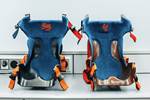



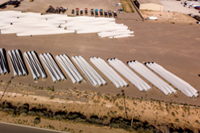








.jpg;maxWidth=300;quality=90)




